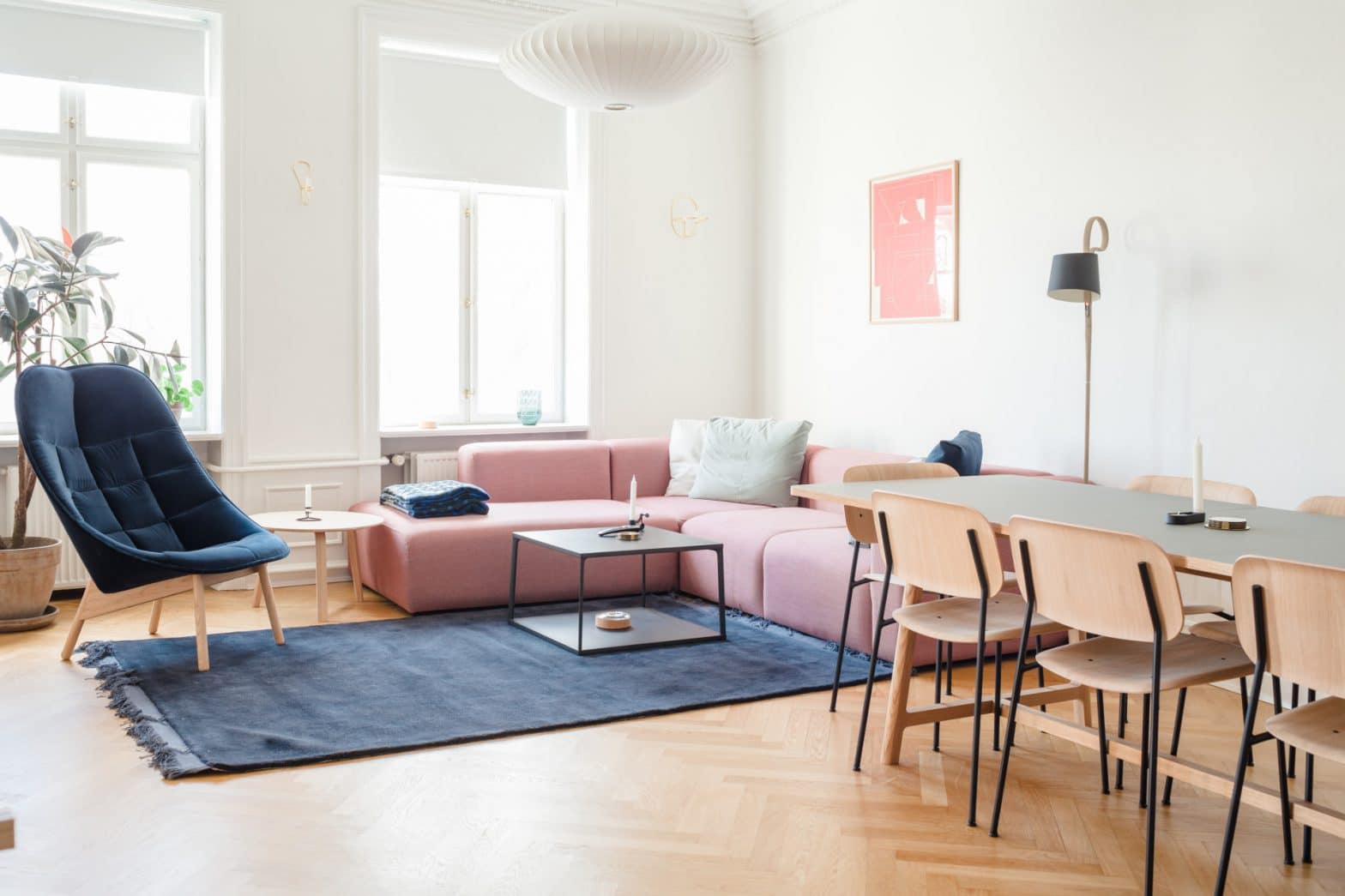Co-living is becoming more and more popular among the expat community. By offering affordable houses for individuals, co-living is undoubtedly an effective solution to the housing crisis. You might have already experienced living at the dormitory as a university student; co-living is not much different. Nevertheless, co-living emphasises shared values and community rather than people sharing the same space. In collaboration with LifeX, we clarify what co-living exactly is about and why it can be the right option for your stay abroad.
What is co-living?
Co-living is simply a form of shared housing with other like-minded people. Co-living arrangements can either be smaller rooms, micro-apartments or family-style apartments. Those come fully equipped and furnished. In co-living apartments, people have their own room (singles and couples), but all live under the same roof and share facilities (access to bathroom and kitchen for everyone). Co-living is inspired from shared accommodation that long exists now, but the modern form we know today has mainly emerged from Denmark in the 1960s.
Why is co-living truly designed for expats?
The concept gained interest of the expat community, and more especially the young urban generation, as it perfectly meets their needs and flexible lifestyle. Co-living is suitable for digital nomads, entrepreneurs, freelancers, as well as students or young professionals. Co-living often goes hand in hand with co-working, as you share your work space with other residents. This helps you build your network and meet a lot of new people from different nationalities and backgrounds. Diego N. was very satisfied with this experience: “It’s a great place to start your journey as an expat in a whole new city as it takes away the hassle of searching and agreeing with landlords. On top of that you get to interact with a continuously growing expat community, usually keen to build new relationships. I benefited from a never ending agenda of events which enabled me to grow my network even further.”
What are the main benefits of co-living?
Flexibility: it is definitively one of the best advantages of co-living. Whether you are looking for a short-term rental or a longer one, you have the choice. For example, you might be able to terminate your contract with only one month’s notice.
Attractive pricing: For newly graduated people or those who don’t have a consequent budget allocated for renting, co-living offers attractive costs depending on the length of your stay. Lots of additional services are included and cost-shared with your apartment mates, such as professional cleaning services, gyms, bars or spas.
Social life: if you freshly arrived in your new country of residence, you might be looking forward to meeting new people and having news friends. Co-living often comes with community programs, events and activities that are great opportunities to socialise.
Location: house-sharing companies offers apartments in top locations (in most of the big cities) and nice areas around the world, so you can live and work anywhere you want to.
What you should know if you consider co-living
As you can guess, co-living with other people necessarily implies socialisation and building strong connections with them. However, even though being an active member of the expat community certainly is more rewarding, introverted people can still enjoy this amazing experience. “We have such a great dynamic in our flat that we can socialise when we really want to, but one can also wind down whenever not in the mood.”, explains Amandine S.. Remember that co-living is about learning from other’s differences. This is the reason why open-mindedness is the most important attribute for you.
If you take the leap in this experience, you might struggle to find the limit between your personal space and your flatmates’, simply because it is physically difficult in a shared space. Keeping some of your privacy is therefore important if you want to thrive in a community model. Make sure to fully respect your co-living neighbours’ boundaries and express yours. Co-living implies some rules that everyone should follow in order to keep a good atmosphere within the group. Marlene C, who experienced co-living with LifeX, kindly shares some invaluable piece of advice: “The only thing to remember is to read the Code of Conduct for the apartment 👋 Keep the apartment clean and set the same expectations with all of your roommates.”
About LifeX:
LifeX is a pan-European network of beautiful co-living homes for young professionals, enabling them to have complete convenience and flexibility. It makes settling in a new city easier than ever before as it pre-packages everything young professionals need to quickly feel at home. From beautiful Nordic-style apartments in the best locations, to the convenience of weekly cleaning and flexible membership terms to an embedded community of young professionals. LifeX currently operates co-living homes in Copenhagen, Berlin, Paris, Munich, Vienna and London, with more than 200 members from 50+ countries.
If you are interested in co-living for your expatriation project, or if you are a landlord who wants to maximise your investment, you can contact LifeX by email: sascha@joinlifex.com or by phone: +4550105129


